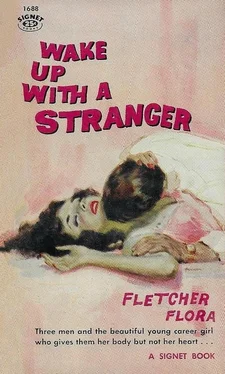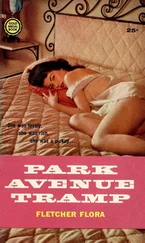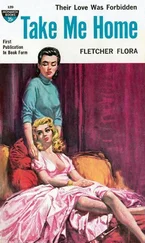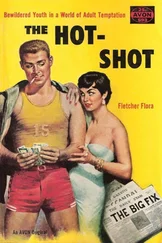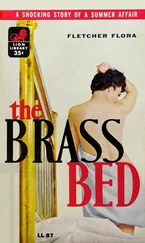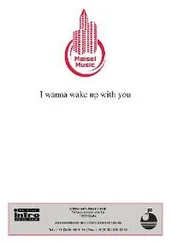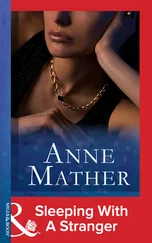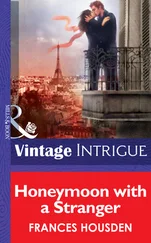“Do you like Tchaikovsky?” he said.
“I don’t know. The Swan Lake score, at least. I know very little about music, really.”
“It’s very nice, very buoyant. When I was younger, I preferred the heavy things, the Pathetique and the odd Beethovens and things of that sort, but as I grow older and heavier myself, I find myself liking the lighter touch. Mozart, I think, is my favorite now. Do you care for Mozart?”
“Not especially, I’m afraid. As I said, I know little about music. I suspect that my judgment is not particularly good.”
“Oh, well, perhaps Mozart is for old men trying to forget they’re old, although I doubt that such an evaluation would be generally acceptable.”
He turned away from the phonograph, repeating his thin smile, and she wagered with herself, watching him, that he was Scotch and soda. She was mildly surprised, therefore, when he said in response to her offer of a drink that he would take bourbon in plain water. She went into the kitchen to fix the drinks, filling his glass from the tap at the sink. When she returned, he was still standing as she had left him, not a perceptible difference in his position or posture. He was, she thought, a remarkably quiet man, deliberate, conservative with sound and motion, as if he practiced a cult of quietude in a world too loud and too agitated. Handing him his drink, she asked him to sit down, and he did so after her.
“I suppose,” he said, “you’ve guessed my reason for coming.”
“No.” She shook her head. “I thought it would be something about the shop, but I wasn’t sure.”
“Has it occurred to you that you might have been remembered in his will?”
“Yes, but I haven’t thought much about it one way or another.”
“I’m happy to say that he left you ten thousand dollars.”
“Ten thousand! That’s quite a lot of money.”
She looked down at her glass, feeling in her breast a sudden clot of pain at this post-mortem evidence of his generosity, a savage resurgence of self-reproach that she had deserted his body in death.
“On the contrary, I think that it’s not as much as he really would have liked you to have.” Earl Joslin sipped bourbon and water and looked at her quietly over the rim of the glass. “How well did you know Aaron, Miss Buchanan?”
“Quite well. He was my friend as well as my employer.”
“Yes. I knew that, of course, without asking. I was his friend, too, besides being his lawyer, and I always enjoyed his confidence. He valued highly not only his personal relationship with you, but also your business relationship. He considered you an extremely talented and clever young woman. This is something you are aware of, naturally.”
“I think so. He always implied as much, though he never said it directly. It was unnecessary for him to say it.”
“Yes. The best relationships are those in which things are understood. Possessing, as you did, this understanding, were you aware that his private life was not particularly happy?”
“I was aware that he did not love his wife, if that’s what you mean.”
“Precisely. Please excuse the deviousness that my training has given me. And yet, not loving his wife, he left her, with the exception of your bequest and a small one to Miss Ingram, all of a very large estate, which is much more than the law requires. Do you understand why he would do such a thing?”
“No. I haven’t thought about it.”
“If you were to think about it now, could you understand?”
“I think he must have considered it a kind of moral obligation.”
“True. I can see that your relationship with him was really quite sensitive. As for me, however, I would call it penance.” He drank again from his glass and sat for a few moments in silence, either waiting for her comment, if she had one, or considering how to continue. “Aaron Burns was a lonely man,” he said. “He was really more than that. He was a tortured man. All his life he was emotionally vulnerable because of the heritage he had rejected. He married for reasons that had nothing to do with love, and the marriage was a great mistake. Afterward he looked upon his wife as a kind of merited punishment and upon his life with her as a kind of penance. To have treated her in his will otherwise than he did would have seemed to him like an evasion of the penance he thought just. It would have been like trying to cheat Yahweh. Do you understand what I am trying to say?”
“I understand what you are trying to say, but I don’t understand why you are saying it.”
“Well, neither do I, precisely. Let’s just say that I am troubled by the memory of this man. Therefore it’s a relief to talk about him with someone he loved. Is that a satisfactory reason?”
“Yes. I’m sorry if I sounded rude.”
“No. Nothing of the sort. Perhaps I should not have spoken so freely.”
“I’m glad you did.”
“Good. Then no one is offended. Tell me, Miss Buchanan, are you prepared to continue in your present position at the shop?”
“Yes, but I’ve been wondering if I would be asked.”
“I’m asking you now. I talked with Mrs. Burns this afternoon after the services, and she agrees that the shop should remain open until it is finally disposed of.”
“Is it going to be sold?”
“Yes. That is what Mrs. Burns wishes.”
“I’m sorry to hear it.”
“So am I, frankly. Would you like to know what I advised her to do?”
“Yes.”
“I advised her to keep the shop and put it under your management.”
“I’m flattered and very grateful.”
“There’s no need to be. I’m convinced that you are perfectly competent, which precludes flattery, and I was unable to get my advice accepted, which makes gratitude excessive.”
“Nevertheless, I am grateful to you for trying. Do you think it would do any good if I were to talk with Mrs. Burns?”
“No, I do not. In fact, I’m afraid it would be unpleasant for you to attempt it.”
“I’d be willing to risk the unpleasantness if there were the slightest chance of success.”
“I predict that there’s more than a risk of the former and less than a chance of the latter. However, you are perfectly free to see her if you please. If you do, I wish you luck.”
“Thank you. Will you have another drink?”
“No. I think not. It has been very nice talking with you, but now I had better go.”
He stood up, and she stood also. Taking his empty glass, she set it with her own on a table and went into the bedroom for his coat and hat. Returning, she found that he had walked to the door in her absence, and he took the coat and hat from her and stood with the coat draped over one arm and the hat held in his hand.
“Goodby, Miss Buchanan,” he said. “Since I am temporarily in charge of Aaron’s estate, it is certain that we’ll meet again.”
“I hope so.”
“Thank you for seeing me.”
“On the contrary, I am grateful to you for coming.”
There was, after the reopening of the shop, an appreciable increase of interest in Donna Buchanan originals. It was real and discernible and tremendously exhilarating. Stimulated by this, and needing in the difficult aftermath of Aaron’s death the relief and defense of intense activity, she entered a period of creativeness in which ideas were conceived and executed with a hot facility and perfection. And in her mind she began to evolve the plan for a show, an exclusive presentation of original gowns to those who would come by invitation. The only oppression was the threat of the shop’s disposal, and every day she resolved to go to see Aaron’s widow. But this was something she dreaded exorbitantly. Every day she postponed it until the day following, and the day never arrived.
Читать дальше
